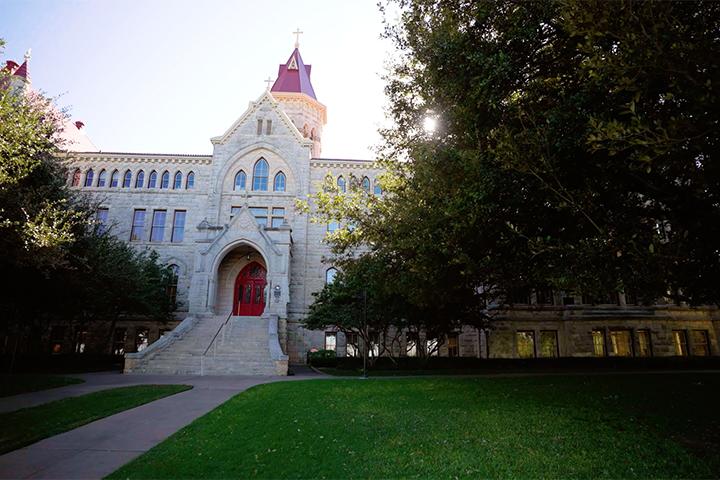
Experience the hilltop.
Apply NowAbout St. Edward’s University
Founded in 1885, St. Edward’s is a nationally ranked, Holy Cross university and a proud Hispanic Serving Institution located in Austin, Texas. We educate the hearts and minds of undergraduate and graduate students, so they are prepared to make a difference.
Majors and Minors
Majors
- Accounting
- Accounting Information Technology
- Acting
- Animation
- Art
- Behavioral Neuroscience
- Biochemistry
- Bioinformatics
- Biology
- Business Administration
- Catholic Studies
- Chemistry
- Communication
- Computer Science
- Criminal Justice
- Digital Media Management
- Digital Storytelling and Content Creation
- Economics
- English Literature
- Entrepreneurship
- Environmental Biology and Climate Change
- Environmental Chemistry
- Environmental Science and Policy
- Ethics and Leadership
- Finance
- Forensic Chemistry
- Forensic Science
- French
- Global Languages and Cultural Studies
- Global Studies
- Graphic Design
- Health Systems and Administration
- History
- International Business
- Kinesiology
- Leadership and Social Justice
- Management
- Marketing
- Mathematics
- Medical Laboratory Science
- Nursing
- Philosophy
- Photography and Media Arts
- Political Science
- Pre-Dental
- Pre-Law
- Pre-Medical
- Pre-Physical Therapy
- Pre-Veterinary
- Psychology
- Religious and Theological Studies
- Social Work
- Sociology
- Spanish
- Theater Arts
- User Experience Design
- Video Game Development
- Writing and Rhetoric
Pre-Professional Programs
Minors
- Accounting
- Animation
- Art
- Art History
- Bioinformatics
- Biology
- Business Administration
- Chemistry
- Chicanx and Latinx Studies
- Communication
- Computer Science
- Criminal Justice
- Digital Marketing (Minor)
- Digital Storytelling and Content Creation
- Economics
- Education Studies (Minor)
- English Literature
- Entrepreneurship
- Environmental Humanities
- Environmental Science and Policy
- Fitness and Conditioning (Minor)
- Forensic Science
- French
- German
- Global Studies
- Graphic Design
- Health Communication
- History
- Interdisciplinary Scholars Minor
- International Business
- Jewish Studies
- Journalism and Digital Media
- Kinesiology
- Legal Studies
- Management
- Mathematics
- Musical Theater
- Philosophy
- Photography and Media Arts
- Physics (Minor)
- Political and Civic Engagement (Minor)
- Political Science
- Professional Ethics
- Psychology
- Recreation Management (Minor)
- Religious and Theological Studies
- Social Work
- Sociology
- Spanish
- Teacher Education (Minor)
- Teacher Education - Secondary (Grades 7-12)
- Theater Arts
- User Experience Design
- Video Game Development
- Visual Studies
- Women’s and Gender Studies
- Writing and Rhetoric
Certifications
Partner Programs
Graduate Programs
- Master of Arts in Counseling
- On Campus/Online Master of Business Administration
- Online Doctorate of Education (Ed.D.) in Leadership and Higher Education
- Online Master of Education in Applied Behavior Analysis
- Online Master of Science in Accounting Analytics
- Online Master of Science in Business Analytics
- Online Master of Science in Digital Marketing and Analytics
- Online Master of Science in Organizational Leadership

Visit Us
Explore the transformative opportunities and value of a St. Edward’s education.